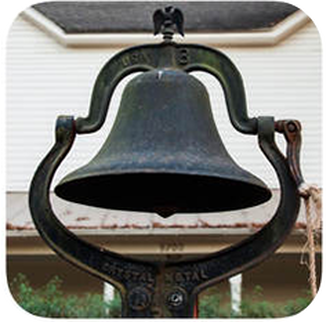Curriculum
Academics at Pioneer Springs: As a public charter school, our rigorous curriculum follows guidelines set by the state of North Carolina. The difference at Pioneer Springs is how these core subjects come alive for our students. Core concepts are presented in integrated thematic units, in which connections between disciplines are highlighted and learning is set in a compelling real-world context. In keeping with our focus on the natural world, students in each grade level examine their entire year of study through the lens of a different ecosystem. From the kindergarten world of the pond to fifth graders’ lush forest expanses, these ecosystems provide the framework for a year of discovery-based learning integrating all core subjects.
To this foundational core curriculum we add special area focus on subjects aligned with our unique mission and philosophy. Known as Connect Classes, each of these classes is taught by a highly qualified expert and is thematically tied to students’ classroom units. Connect Classes at Pioneer Springs include Art, Music, P. E., Spanish, Nature, Ceramics, and Yoga.
The NC School Report Card: Pioneer Springs’ academic program has cumulatively resulted in significant growth for students and the school. The 2014-15 composite score, the first year the school participated in state testing, was a 48 and resulted in a D grade. This feedback resulted in a realignment of our curriculum maps and an emphasis on math instruction, the result of which was a 10 point gain on the composite in 2015-16–58, a C. Continued professional development and a singular focus on individualized instruction produced even greater gain this past year, 2016-17. The school earned a composite score of 69, a C (1 point shy of a B!) Our continued focus is on refining our curriculum alignment and the incorporation of the Expeditionary Learning model for English Language Arts instruction.
Read to Achieve: In accordance with General Statute 115C-218.85, following are the results of the 3rd grade Read to Achieve mandate for the 2016-17 school year.
McKinney-Vento Act: Homeless Children
Homeless children and youths are individuals who lack a fixed, regular, and adequate nightime residence, including:
Educational Rights of Children and Youth Experiencing Homelessness
Children and youth experiencing homelessness have the right to:
These rights are established under Title VII-B of the McKinney-Vento Homeless Assistance Act. The McKinney-Vento Act was originally authorized in 1987 and re-authorized in December 2015 by the Every Student Succeeds Act (ESSA). For more information on parent/youth rights please visit https://nche.ed.gov/pr/parent_booklet.php. NCHEP website (https://hepnc.uncg.edu/)
While charter schools are not required to post data specific to the school’s homeless data, additional NC Data can be found at: (https://hepnc.uncg.edu/about/ and http://profiles.nche.seiservices.com/StateProfile.aspx?StateID=33)
For more information on the McKinney-Vento Act please contact:
Ms. Cindy Friday, Ed.S
Student Support Services Coordinator
704-494-0777
[email protected]
Ms. Lisa Phillips
NC State Coordinator
336-315-7491
To this foundational core curriculum we add special area focus on subjects aligned with our unique mission and philosophy. Known as Connect Classes, each of these classes is taught by a highly qualified expert and is thematically tied to students’ classroom units. Connect Classes at Pioneer Springs include Art, Music, P. E., Spanish, Nature, Ceramics, and Yoga.
The NC School Report Card: Pioneer Springs’ academic program has cumulatively resulted in significant growth for students and the school. The 2014-15 composite score, the first year the school participated in state testing, was a 48 and resulted in a D grade. This feedback resulted in a realignment of our curriculum maps and an emphasis on math instruction, the result of which was a 10 point gain on the composite in 2015-16–58, a C. Continued professional development and a singular focus on individualized instruction produced even greater gain this past year, 2016-17. The school earned a composite score of 69, a C (1 point shy of a B!) Our continued focus is on refining our curriculum alignment and the incorporation of the Expeditionary Learning model for English Language Arts instruction.
Read to Achieve: In accordance with General Statute 115C-218.85, following are the results of the 3rd grade Read to Achieve mandate for the 2016-17 school year.
- Of 41 students, 24 students or 59% met the benchmark through standardized or alternate testing and 17 students, or 41.4%, did not meet the benchmark. 8 of those students, or 19.5%, were granted Good Cause Exemptions; 3 of those students, or 7%, withdrew from the school at the end of the 16-17 school year. At present, we are awaiting Read to Achieve scores to determine what percent, if any, of students will be retained according to RTA legislation.
McKinney-Vento Act: Homeless Children
Homeless children and youths are individuals who lack a fixed, regular, and adequate nightime residence, including:
- Children and youths who are sharing the housing of other persons due to loss of housing, economic hardship, or a similar reason; are living in motels, hotels, trailer parks, or camping grounds due to the lack of alternative adequate accommodations; are living in emergency or transitional shelters; are abandoned in hospitals;
- Children and youths who have a primary nighttime residence that is a public or private place not designed for or ordinarily used as a regular sleeping accommodation for human beings;
- Children and youths who are living in cars, parks, public spaces, abandoned buildings, substandard housing, bus or train stations, or similar settings; and
- Migratory children who qualify as homeless because the children are living in circumstances described above.
Educational Rights of Children and Youth Experiencing Homelessness
Children and youth experiencing homelessness have the right to:
- Go to school, no matter where they live or how long they have lived there.
- Continue in the school they last attended before becoming homeless or the school they last attended, if that is the parent’s or guardian’s choice and is feasible.
- Receive transportation to the school they last attended before their family became homeless or the school they last attended, if a parent or guardian requests such transportation.
- Attend school and participate in school programs with children who are not homeless.
- Enroll in school without giving a permanent address.
- Enroll and attend classes while the school arranges for the transfer of school and immunization records or any other documents required for enrollment.
- Receive the same special programs and services, if needed, as provided to all other children served in these programs.
- Receive transportation to school and to school programs comparable to that provided to children who are not homeless.
These rights are established under Title VII-B of the McKinney-Vento Homeless Assistance Act. The McKinney-Vento Act was originally authorized in 1987 and re-authorized in December 2015 by the Every Student Succeeds Act (ESSA). For more information on parent/youth rights please visit https://nche.ed.gov/pr/parent_booklet.php. NCHEP website (https://hepnc.uncg.edu/)
While charter schools are not required to post data specific to the school’s homeless data, additional NC Data can be found at: (https://hepnc.uncg.edu/about/ and http://profiles.nche.seiservices.com/StateProfile.aspx?StateID=33)
For more information on the McKinney-Vento Act please contact:
Ms. Cindy Friday, Ed.S
Student Support Services Coordinator
704-494-0777
[email protected]
Ms. Lisa Phillips
NC State Coordinator
336-315-7491



